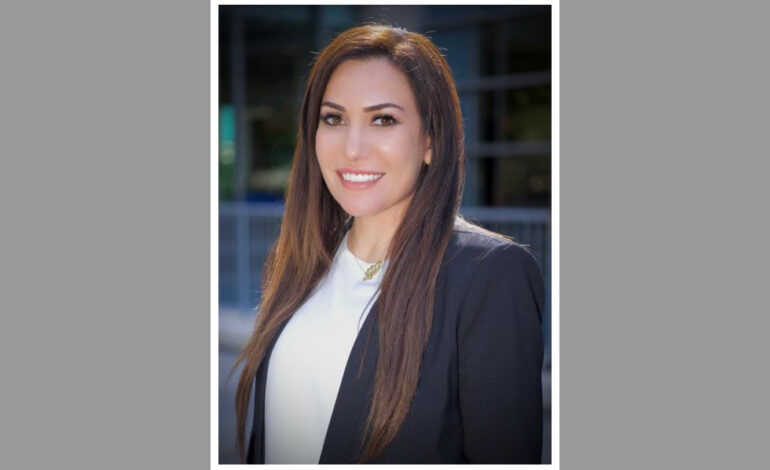DEARBORN — Michigan Solicitor General Fadwa Hammoud has successfully argued before the highest court in the land after first making history as the first Arab American Muslim woman to do so in front of the U.S. Supreme Court.
Supreme Court Justices rendered a 6-3 opinion in Hammoud’s favor and in favor of the state’s stance in the Brown v. Davenport case.
Last October, Hammoud appeared in front of the Court to argue in the case involving the 2007 conviction of Ervine Davenport in Kalamazoo Circuit Court. Davenport had strangled Annette White to death, threw her body in a field, then went to her apartment and stole her property and later bragged that he “offed” her.
Davenport was shackled at trial, but the court failed to place on the record the reasons why he was shackled. State attorneys concede that was a constitutional error, but it was a harmless error given the evidence of Davenport’s guilt was overwhelming. The case was closed on the merits in the state court, which also found the shackling error to be harmless beyond a reasonable doubt. Davenport then filed a petition for habeas corpus in the federal district court; that court upheld the state court findings of harmless error in Davenport’s case.
But in September 2020, a divided panel of the Sixth Circuit Court of Appeals disagreed, reversing the federal district court’s denial of habeas corpus relief.

Michigan Solicitor General Fadwa Hammoud stands with members of her family, U.S. Senators Debbie Stabenow (D-MI) and Gary Peters (D-MI) and Michigan Attorney General Dana Nessel in front of the U.S. Supreme Court. Photo: Debbie Stabenow’s Office
While this opinion from SCOTUS is a personal and professional achievement of the highest sort for me, it is – more importantly – the proper decision under the law. — Fadwa Hammoud
Hammoud explained to the Supreme Court in October that a federal judge may not simply substitute his or her own judgment for the judgment of a state court when it is not contrary to or an unreasonable application of federal law.
The Supreme Court opinion on the case was released Thursday morning, in favor of Hammoud and the state.
“While this opinion from SCOTUS is a personal and professional achievement of the highest sort for me, it is – more importantly – the proper decision under the law,” Hammoud said. “Today’s Supreme Court decision ensures that state court decisions that determine an error at trial was harmless beyond a reasonable doubt are given the deference and respect they are due – not just in Michigan, but across the country. I remain deeply honored that the State and the Attorney General entrusted me with this argument, and I am humbled by the Justices’ decision.”
Hammoud’s position, on behalf of the state, was that once a state court has adjudicated a criminal case, a federal judge on review must give proper deference to that court’s decision prior to granting relief, as required by Congress.
A decision on the matter was expected by July.
In addition to this history-making argument and subsequent victory, Hammoud became the nation’s first Arab American solicitor general when Attorney General Dana Nessel appointed her at the beginning of 2019 to serve as Michigan’s 12th solicitor general.
“Solicitor General Hammoud remains a critical and effective advocate for our state’s residents and I’m so proud of this victory before SCOTUS,” Nessel said. “Not only does this decision uphold the valid conviction of a murderer and achieve justice for his victims, it also assures that in future cases, our courts’ decisions will be afforded the respect they are entitled to under the law. Congress has forbidden federal courts from substituting their own judgment for the reasonable decisions made by state judges, and this decision reinforces that standard.”
In October, on the historic occasion of her first argument in front of the U.S. Supreme Court, Hammoud told The Arab American News: “My argument before the U.S. Supreme Court was a culmination of hard work by brilliant attorneys at the Michigan Department of Attorney General and a reflection of my community’s contribution to public service.”
Hammoud is a Dearborn native and active Arab American community advocate.






1 Comment
Lee J.
April 24, 2022 at 1:21 pmIt’s great that she won her case, but being Arab should not be a factor . We are judged by our merits, our character, not the color of our skin or. ethnic background.